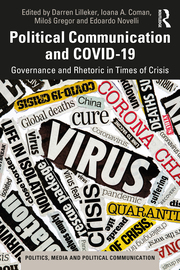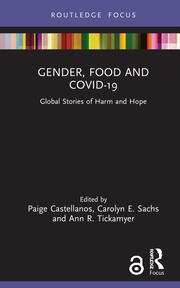Description
This edited collection compares and analyses the most prominent political communicative responses to the outbreak and global spread of the COVID-19 strain of coronavirus within 27 nations across five continents and two supranational organisations: the EU and the WHO. The book encompasses the various governments’ communication of the crisis, the role played by opposition and the vibrancy of the information environment within each nation.
The chapters analyse the communication drawing on theoretical perspectives drawn from the fields of crisis communication, political communication and political psychology. In doing so the book develops a framework to assess the extent to which state communication followed the key indicators of effective communication encapsulated in the principles of: being first; being right; being credible; expressing empathy; promoting action; and showing respect. The book also examines how communication circulated within the mass and social media environments and what impact differences in spokespersons, messages and the broader context has on the success of implementing measures likely to reduce the spread of the virus. Cumulatively, the authors develop a global analysis of the responses and how these are shaped by their specific contexts and by the flow of information, while offering lessons for future political crisis communication.
This book will be of great interest to students and researchers of politics, communication and public relations, specifically on courses and modules relating to current affairs, crisis communication and strategic communication, as well as practitioners working in the field of health crisis communication.
Table of Contents
Foreword
Darren Lilleker, Ioana A. Coman, Miloš Gregor and Edoardo Novelli
Introduction: Political Communication, Governance and Rhetoric in Times of Crisis
Ioana A. Coman, Dalia Elsheikh, Miloš Gregor, Darren Lilleker and Edoardo Novelli
Case Studies
1. World Health Organisation: The Challenges of Global Leadership
Darren Lilleker and Miloš Gregor
2. China: Diversion, Ingratiation and Victimization
Menglin Liu and Shan Xu
3. Japan: New Directions for Digital Japan
Leslie Tkach-Kawasaki
4. South Korea: No Shutdown, No Lockdown
Jangyul Robert Kim and Sera Choi
5. The United States: Politics Versus Science?
John M. Callahan
6. The EU: The Story of a Tragic Hero and the 27 Dwarfs
Dennis Lichtenstein
7. France: An Unpopular Government Facing an Unprecedented Crisis
Pierre-Emmanuel Guigo
8. Australia: A Triumph of Sorts
Fiona Wade
9. Germany: Between a Patchwork and Best-Practice
Isabelle Borucki and Ulrike Klinger
10. India: A Spectacle of Mismanagement
Chindu Sreedharan
11. Italy: The Frontrunner of the Western Countries in an Unexpected Crisis
Edoardo Novelli
12. Spain: Managing the Uncertain Whilst Facing Economic Collapse
Sergio Pérez Castaños and Alberto Mora Rodríguez
13. Sweden: Lone Hero or Stubborn Outlier?
Bengt Johansson and Orla Vigsø
14. The UK: From Consensus to Confusion
Ruth Garland and Darren Lilleker
15. Egypt: Emotional Speech and Complicated Reality
Dalia Elsheikh
16. Russia: A Glass Wall
Svetlana S. Bodrunova
17. Austria: A Ski Resort as the Virus Slingshot of Europe
Katie Bates and Lore Hayek
18. Iran: Disciplinary Strategies and Governmental Campaigning
Azra Ghandeharion and Josef Kraus
19. Brazil: More Than Just a Little Flu
Ícaro Joathan, Andrea Medrado and Thainã Medeiros
20. Norway: From Strict Measures to Pragmatic Flexibility
Bente Kalsnes and Eli Skogerbø
21. Iceland: No Lockdown and Experts at the Forefront
Jón Gunnar Ólafsson
22. Ireland: Solid Swansong from Caretaker Government
Dawn Wheatley
23. The Czech Republic: Self-proclaimed Role-Models
Otto Eibl and Miloš Gregor
24. Hungary: Illiberal Crisis Management
Norbert Merkovity, Márton Bene and Xénia Farkas
25. Poland: Protecting the Nation While Struggling to Maintain Power
Michał Jacuński
26. Ghana: Political Expediency or Competent Leadership?
Sally Osei-Appiah
27. South Africa: A United Front? A Divided Government
Robert Mattes and Ian Glenn
28. Kosovo: Political Crisis, One More Challenge Alongside COVID-19
Dren Gërguri
29. Turkey: Declaring of War on an Epidemic
Elif Kahraman
30. Conclusion: Political Communication and COVID-19: Governance and Rhetoric in Global Comparative Perspective
Darren Lilleker, Ioana A. Coman, Miloš Gregor and Edoardo Novelli






